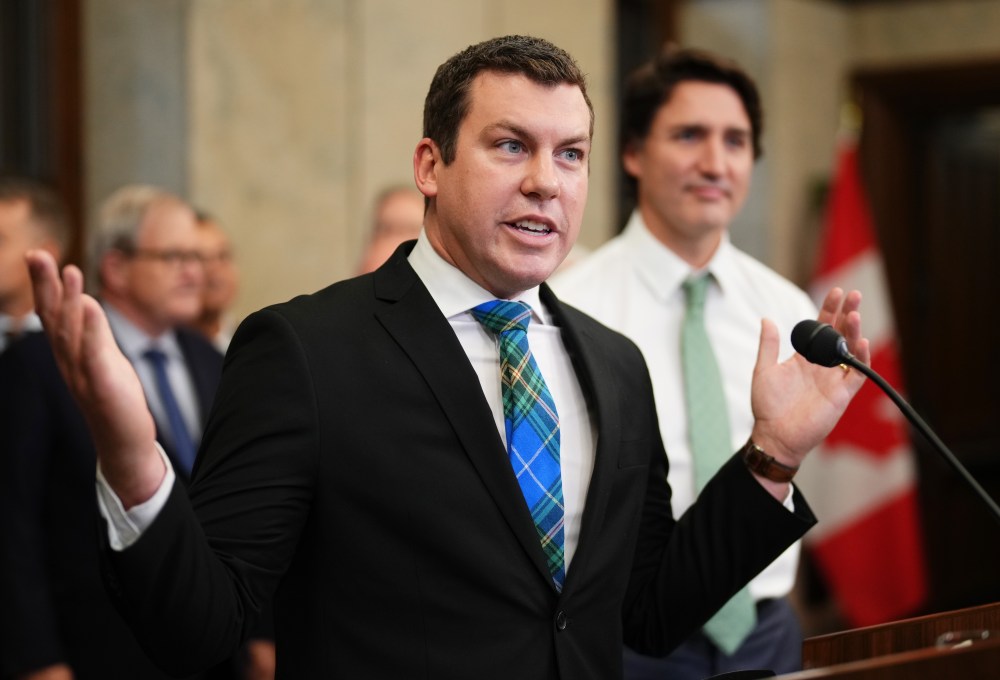Producers keep watch on market disruptions
Advertisement
Read this article for free:
or
Already have an account? Log in here »
We need your support!
Local journalism needs your support!
As we navigate through unprecedented times, our journalists are working harder than ever to bring you the latest local updates to keep you safe and informed.
Now, more than ever, we need your support.
Starting at $15.99 plus taxes every four weeks you can access your Brandon Sun online and full access to all content as it appears on our website.
Subscribe Nowor call circulation directly at (204) 727-0527.
Your pledge helps to ensure we provide the news that matters most to your community!
To continue reading, please subscribe:
Add Brandon Sun access to your Winnipeg Free Press subscription for only
$1 for the first 4 weeks*
*$1 will be added to your next bill. After your 4 weeks access is complete your rate will increase by $4.99 a X percent off the regular rate.
Read unlimited articles for free today:
or
Already have an account? Log in here »
“What we can take from it is farmers and industry are at the mercy of politics. There is precious little they can do about it.”
— Market analyst Chuck Penner, LeftField Commodity Research
We’re glad to see that Prime Minister Mark Carney is taking seriously western Canadian concerns over the hugely damaging tariffs that China has imposed on canola.

The prime minister told reporters on Wednesday that he and other senior officials would work to resolve the dispute with Beijing. And on Thursday, his office said he will send Nova Scotia MP Kody Blois — Carney’s parliamentary secretary — to China as part of Saskatchewan Premier Scott Moe’s trade mission on Saturday.
Moe had previously called for Carney to meet with Chinese President Xi Jinping to help find a way to resolve this particular trade issue, which was imposed by China as retaliation. China’s decision to hit Canadian canola seed with a 75.8 per cent tariff last month was widely viewed as a response to Canada’s 100 per cent tariff on Chinese electric vehicles earlier this year.
Canola seed was Manitoba’s biggest export to China last year, bringing in $649 million.
In addition to ensuring federal involvement in Moe’s trade mission, Carney’s office also noted that “the government will announce additional measures in support of Canadian producers shortly,” according to a report from The Canadian Press.
What Blois can accomplish by meeting with Xi remains to be seen, but at least there is some movement by Ottawa to deal with the situation.
As Canadian market analyst Chuck Penner told CP in a recent interview, Canadian producers are caught in the middle of an international trade dispute that is not of their own making — and there’s very little they can do about it but put pressure on the federal Liberals.
Farmers are preparing for this year’s harvest in the coming weeks, but the cash price farmers receive for their canola is much lower than it has been. And while futures are slightly better, they’re still down, too.
Penner told CP that the price drop has resulted in farmers losing at least $140 million on their canola over the last two weeks. Add that to what happened in March, when China imposed a 100 per cent tariff on canola oil and meal, and producer losses amount to about $800 million.
That’s not far off the $1-billion financial hit estimated in September 2024 by Morningstar DBRS, an international credit rating agency, after China’s Ministry of Commerce announced it would initiate an anti-dumping investigation into canola seed imports from Canada a year ago.
China has argued Canadian companies were dumping canola into the Chinese market and hurting its own domestic canola oil market, while Ottawa maintains that Canadian exporters are following international trade rules.
Last year, Black Creek Farm co-owner Simon Ellis in Wawanesa told the Sun that the fallout from the potential tariff could have serious implications for farmers.
“The market disruptions could affect our harvest plans and financial stability. This is a large concern for our farm,” Ellis told us at the time. “We’ve already been hit by falling prices due to the recent rail strike, and now we’re seeing even more pressure from China’s trade actions. It’s a tough situation for us and many other farmers.”
That was a prescient comment, and we’re seeing the reality of the situation played out in real time.
Canola producers don’t have the luxury of easily pulling it out from a normal crop rotation, once it has been established. Crop rotations — the practice of growing a different kind of crop on the same acreage from year to year with a two- or three-year break between — is beneficial for the health of the soil, and can help manage crop diseases.
And ironically enough, producers are expecting a more bountiful canola harvest than the one previous. According to Chris Davison with the Canola Council of Canada, a larger canola harvest could impact demand — and consequently lower the price even further.
The reality is that Canadian canola producers were targeted by China in order to pit eastern and western Canadians against each other. Ottawa sheltered its vehicle manufacturing sector in Ontario from cheap Chinese electric vehicle imports, and so this is a retaliation designed to impact Manitoba, Saskatchewan and Alberta and cause political turmoil. And thus far, it has been somewhat successful.
It’s not an easy headache for the Carney government to handle, but one thing is certain — choosing one industry over the other will not go well politically either way.
